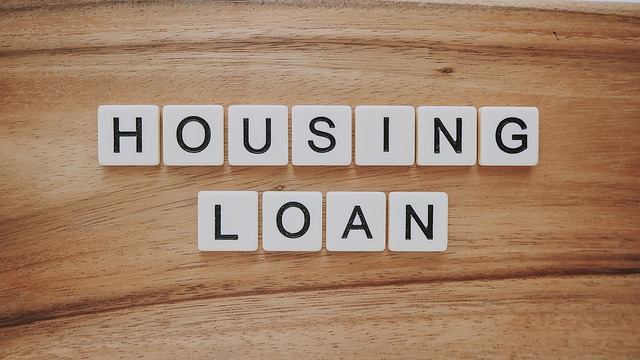Understanding Mortgages: Your Gateway to Homeownership
A mortgage is a crucial financial tool that enables millions of Americans to achieve their dream of homeownership. This long-term loan, secured by the property itself, allows borrowers to purchase homes without paying the full price upfront. Whether you're a first-time homebuyer or looking to refinance, understanding the intricacies of mortgages is essential for making informed decisions about your housing finance.

What exactly is a mortgage and how does it work?
A mortgage is a loan specifically designed for purchasing real estate. When you take out a mortgage, the lender provides the funds to buy the property, and in return, you agree to repay the loan over a set period, typically 15 to 30 years. The property serves as collateral, meaning if you fail to make payments, the lender can foreclose and take possession of the home.
The mortgage process begins with an application, where you provide detailed information about your financial situation. If approved, you’ll receive a loan offer outlining the terms, including the interest rate, loan amount, and repayment period. Once you accept and close on the loan, you’ll make regular monthly payments that include both principal and interest.
What are the main types of mortgages available?
There are several types of mortgages to suit different financial situations and homebuying needs:
-
Conventional Loans: These are not backed by government agencies and often require higher credit scores and down payments.
-
FHA Loans: Insured by the Federal Housing Administration, these loans are popular among first-time buyers due to lower down payment requirements.
-
VA Loans: Available to eligible veterans and active-duty service members, offering favorable terms and often no down payment.
-
USDA Loans: Designed for rural homebuyers, these loans can offer zero down payment options for eligible properties and borrowers.
-
Jumbo Loans: For high-value properties that exceed conventional loan limits, typically requiring excellent credit and larger down payments.
How do interest rates affect your mortgage?
Interest rates play a crucial role in determining the overall cost of your mortgage. Even small differences in rates can significantly impact your monthly payments and the total amount you’ll pay over the life of the loan. There are two main types of interest rates for mortgages:
-
Fixed-rate mortgages: The interest rate remains constant throughout the loan term, providing predictable monthly payments.
-
Adjustable-rate mortgages (ARMs): These start with a lower fixed rate for an initial period, then adjust periodically based on market conditions, which can lead to fluctuating payments.
When choosing between fixed and adjustable rates, consider your long-term financial goals, risk tolerance, and how long you plan to stay in the home.
What factors influence your mortgage eligibility?
Lenders evaluate several factors when determining your mortgage eligibility:
-
Credit Score: A higher score typically leads to better loan terms and interest rates.
-
Debt-to-Income Ratio (DTI): This compares your monthly debt payments to your income, with lower ratios being more favorable.
-
Employment History: Stable employment and consistent income are crucial for approval.
-
Down Payment: Larger down payments can improve your chances of approval and may lead to better loan terms.
-
Property Appraisal: The home’s value must justify the loan amount.
-
Assets and Reserves: Having savings and investments can strengthen your application.
What unique considerations apply to mortgages in the United States?
In the United States, mortgages come with some unique features and considerations:
-
Tax Deductions: Mortgage interest payments are often tax-deductible, potentially reducing your overall tax burden.
-
Private Mortgage Insurance (PMI): Required for conventional loans with less than 20% down payment, adding to monthly costs.
-
Escrow Accounts: Many lenders require these accounts to hold funds for property taxes and insurance payments.
-
Refinancing Options: The U.S. market offers numerous refinancing opportunities to take advantage of lower rates or change loan terms.
-
State-Specific Programs: Many states offer first-time homebuyer assistance programs with favorable terms or down payment assistance.
How do you compare mortgage offers from different lenders?
When shopping for a mortgage, it’s essential to compare offers from multiple lenders to ensure you’re getting the best deal. Here’s a comparison of some top mortgage lenders in the United States:
| Lender | Loan Types | Minimum Credit Score | Notable Features |
|---|---|---|---|
| Rocket Mortgage | Conventional, FHA, VA, Jumbo | 620 | Fully online process, quick closings |
| Wells Fargo | Conventional, FHA, VA, USDA, Jumbo | 620 | Wide range of loan options, physical branches |
| Bank of America | Conventional, FHA, VA, Jumbo | 620 | Relationship discounts, digital application |
| Better.com | Conventional, FHA, Jumbo | 620 | No origination fees, fast pre-approvals |
| Navy Federal Credit Union | Conventional, VA, Military Choice | 620 | Specialized military options, competitive rates |
Prices, rates, or cost estimates mentioned in this article are based on the latest available information but may change over time. Independent research is advised before making financial decisions.
In conclusion, understanding mortgages is crucial for navigating the path to homeownership. By familiarizing yourself with the types of loans available, interest rate impacts, eligibility factors, and unique U.S. considerations, you’ll be better equipped to make informed decisions about your housing finance. Remember to shop around, compare offers, and consider your long-term financial goals when choosing a mortgage that’s right for you.




